Péter Tímár
Рождение : 1950-12-19, Budapest
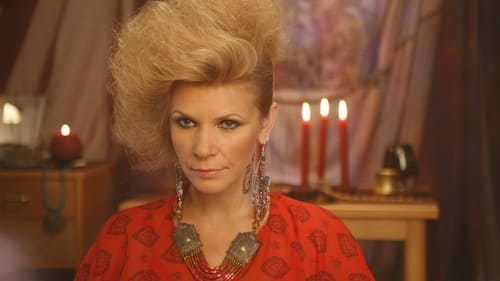
Writer
The title of this Hungarian comedy is a German pun on "room for rent" (Zimmer Feri). Near-broke and desperate, Hungarian entrepreneur Feri decides to put a sleazy spin on tourism. After leasing a Lake Balaton boarding house, he moves in his gang -- wife, nephew, daughter, and the daughter's boyfriend -- and then sets out to scam unsuspecting German tourists. Written and directed by Peter Timor (Dollybirds). This film is also known as Feri's Gang. ~ Bhob Stewart, Rovi

Director
The title of this Hungarian comedy is a German pun on "room for rent" (Zimmer Feri). Near-broke and desperate, Hungarian entrepreneur Feri decides to put a sleazy spin on tourism. After leasing a Lake Balaton boarding house, he moves in his gang -- wife, nephew, daughter, and the daughter's boyfriend -- and then sets out to scam unsuspecting German tourists. Written and directed by Peter Timor (Dollybirds). This film is also known as Feri's Gang. ~ Bhob Stewart, Rovi
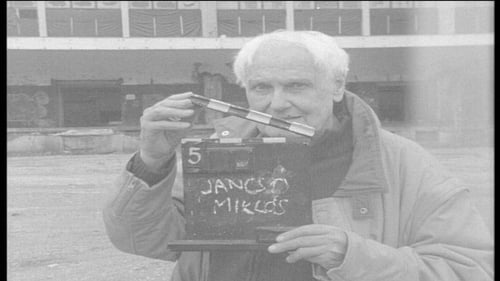
Self
Reconstructions of unrealized Hungarian films in cooperation with the greatest Hungarian film directors.

Director
The story is based around an American Idol kind of TV talent show and the eventual winner of the contest: a young orphan woman, who works at an orphanage herself. As I learned from the werkfilm on the DVD, the story was specifically written for Oláh, who in real life was the runner-up of the very first such TV show in Hungary “Megasztár” (“MegaStar”) in 2004. She didn’t win there despite being many viewers’ favorite and having a terrific voice. It is kind of a consolation that she won in the movie, although reading the legal troubles about getting her fee must have made the victory sour.

Director
After a woman dies, the devil allows her to relive a 2 minute period over and over in order to escape her fate.

Director

Writer
When the home where they grew up and spent the best days of their childhood is threatened, a group of kids bands together to try and save it.

Writer
One day, two unsuccessful rock musicians, Ede and Zaki, come across a competition. To commemorate the anniversary of the Institute for the Blind, they have to write a musical piece for the blind. Since there are no other candidates, they get the job. In two nights they put the piece together. However to their great disappointment, they find that they also have to teach the blind kids to perform it, if they want to get the money. Unwillingly they are submerged into the world of the blind; just like the spectator. While Zaki works on the musical in a studio, Ede starts rehearsing with the blind youths. A strange competition starts among the blind girls. They all fall in love with Ede, and the blonde Edith makes up her mind to approach him. But he fails as a director. He has no idea how to handle these people, so he soon gives up. However...

Director
One day, two unsuccessful rock musicians, Ede and Zaki, come across a competition. To commemorate the anniversary of the Institute for the Blind, they have to write a musical piece for the blind. Since there are no other candidates, they get the job. In two nights they put the piece together. However to their great disappointment, they find that they also have to teach the blind kids to perform it, if they want to get the money. Unwillingly they are submerged into the world of the blind; just like the spectator. While Zaki works on the musical in a studio, Ede starts rehearsing with the blind youths. A strange competition starts among the blind girls. They all fall in love with Ede, and the blonde Edith makes up her mind to approach him. But he fails as a director. He has no idea how to handle these people, so he soon gives up. However...

Writer
The makers, especially Péter Tímár wanted to invoke the atmosphere of the communist dictatorship of Rákosi era lasted from 1947 to 1956. I think they've managed to reconstruct it very much: if you read the history books about the era and newspapers from that times, if you listened to your parents' and grandparents' tales, you will experience the similarities are shocking. The main character (Tutti - Károly Eperjes) is excellent, Eperjes, acting an eccentric, but likable crank is in his royal spirits.

Director
The makers, especially Péter Tímár wanted to invoke the atmosphere of the communist dictatorship of Rákosi era lasted from 1947 to 1956. I think they've managed to reconstruct it very much: if you read the history books about the era and newspapers from that times, if you listened to your parents' and grandparents' tales, you will experience the similarities are shocking. The main character (Tutti - Károly Eperjes) is excellent, Eperjes, acting an eccentric, but likable crank is in his royal spirits.

Writer
The 50 years old Ferenc rents an apartment on the Balaton beach, but it has a lot of debt on it. His plan is to make it profitable.

Director
The 50 years old Ferenc rents an apartment on the Balaton beach, but it has a lot of debt on it. His plan is to make it profitable.
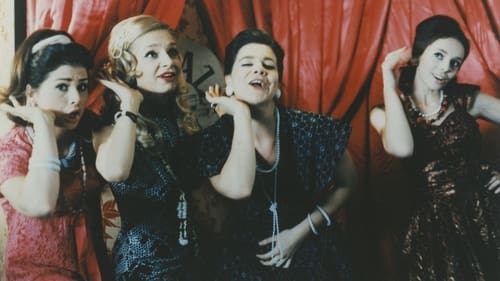
Editor
The movie is set in the actual "Ki Mit Tud?" talent contest in 1962. In reality the contest in dance music category was won by an army brass band. "Omega" which later became one of the most successful Hungarian rock bands came out in the second place.

Writer
The movie is set in the actual "Ki Mit Tud?" talent contest in 1962. In reality the contest in dance music category was won by an army brass band. "Omega" which later became one of the most successful Hungarian rock bands came out in the second place.

Director
The movie is set in the actual "Ki Mit Tud?" talent contest in 1962. In reality the contest in dance music category was won by an army brass band. "Omega" which later became one of the most successful Hungarian rock bands came out in the second place.

Director
The story happens in 1989 in the suburbs of Budapest, where the neighbor maintains an underground worker's guard training base, while the youngsters fall victim to a mistakenly posted letter.

Editor
Defoe, lacking fantasy of his own takes home the drunkard sailor from the pub and lets him tell his stories on the uninhabited island.

Writer
Defoe, lacking fantasy of his own takes home the drunkard sailor from the pub and lets him tell his stories on the uninhabited island.

Director
Defoe, lacking fantasy of his own takes home the drunkard sailor from the pub and lets him tell his stories on the uninhabited island.
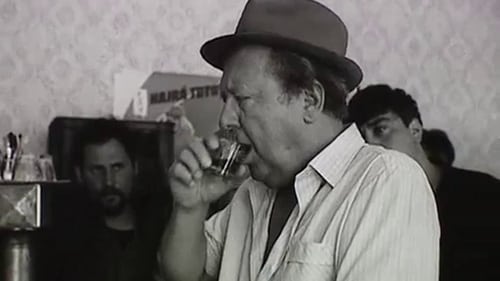
Editor
In the small village of Rátót, every male is called Béla. When a woman gives birth to her child, she names him Józsi...

Writer
A divorced middle-aged woman takes home an ardent suitor, only to discover that he prefers her teenage son. The mother is an overworked coffee-shop attendant, the suitor turns out to be a plain-clothes policeman and the boy is a frustrated flautist.

Director
A divorced middle-aged woman takes home an ardent suitor, only to discover that he prefers her teenage son. The mother is an overworked coffee-shop attendant, the suitor turns out to be a plain-clothes policeman and the boy is a frustrated flautist.

Editor
In the open-air cinema-like scenery domestic rock bands get time for a short movie clip each, linked by an also short musical frame-play. Each of the altogether eighteen clips is a whole film etude playing with visual-lingual associations, film ideas, revealing the back-thought of the songs, and on the whole sometimes melancholicly, sometimes ironically the hopeless, sad picture of the era can be distinguished.

Cinematography
In the open-air cinema-like scenery domestic rock bands get time for a short movie clip each, linked by an also short musical frame-play. Each of the altogether eighteen clips is a whole film etude playing with visual-lingual associations, film ideas, revealing the back-thought of the songs, and on the whole sometimes melancholicly, sometimes ironically the hopeless, sad picture of the era can be distinguished.

Screenplay
In the open-air cinema-like scenery domestic rock bands get time for a short movie clip each, linked by an also short musical frame-play. Each of the altogether eighteen clips is a whole film etude playing with visual-lingual associations, film ideas, revealing the back-thought of the songs, and on the whole sometimes melancholicly, sometimes ironically the hopeless, sad picture of the era can be distinguished.

Director
In the open-air cinema-like scenery domestic rock bands get time for a short movie clip each, linked by an also short musical frame-play. Each of the altogether eighteen clips is a whole film etude playing with visual-lingual associations, film ideas, revealing the back-thought of the songs, and on the whole sometimes melancholicly, sometimes ironically the hopeless, sad picture of the era can be distinguished.
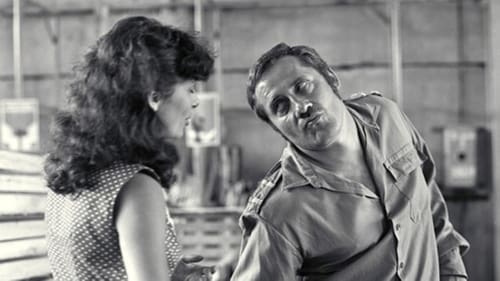
Editor
In the box factory standing in the middle of nowhere only women work, and they themselves only waste their time, as the unmarketable boxes pile up in the yards. The fireman in duty, who stores stolen gasoline in the inflammable plant, sets up cameras in the women's locker room the sake of 'business'.

Writer
In the box factory standing in the middle of nowhere only women work, and they themselves only waste their time, as the unmarketable boxes pile up in the yards. The fireman in duty, who stores stolen gasoline in the inflammable plant, sets up cameras in the women's locker room the sake of 'business'.

Director
In the box factory standing in the middle of nowhere only women work, and they themselves only waste their time, as the unmarketable boxes pile up in the yards. The fireman in duty, who stores stolen gasoline in the inflammable plant, sets up cameras in the women's locker room the sake of 'business'.

Cinematography
Black and White Short. Featuring collage centered around a drive through the country.

Special Effects

Director
Short film directed by Gábor Bódy.

Director
Visus shows the working of the eye using optical and sound effects neglecting the concrete nature of the objects depicted while promoting a technically impeccable exploration of photo receptive capacities to an essay on the visible and the invisible in order to make a poetic vow of loyalty to the act of vision.






























